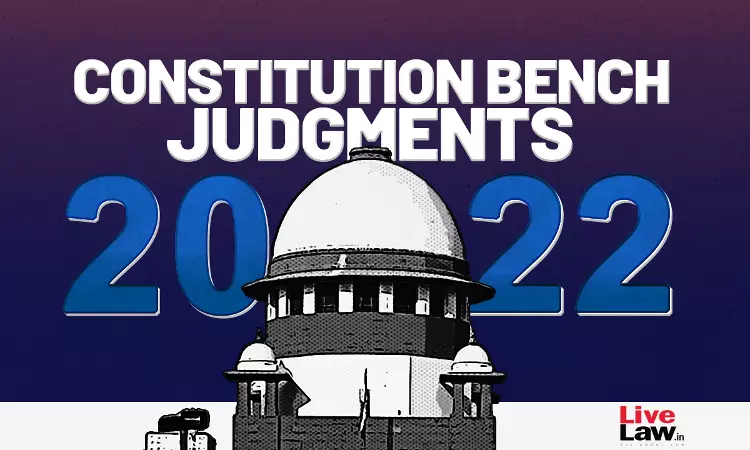- Home
- /
- Top Stories
- /
- Supreme Court Constitution Bench...
Supreme Court Constitution Bench Judgments Of 2022
Anurag Tiwary
22 Dec 2022 3:49 PM IST
There were four judgments/orders of the Constitution Bench in the year 2022. Last year this number was three (3) and in the year before that this number was eleven (11).1. Supreme Court upholds 10% reservations for Economically Weaker SectionsThe bench comprising Chief Justice of India (as he then was) Justice UU Lalit, Justices Dinesh Maheshwari, S Ravindra Bhat, Bela M Trivedi and JB...
Next Story



